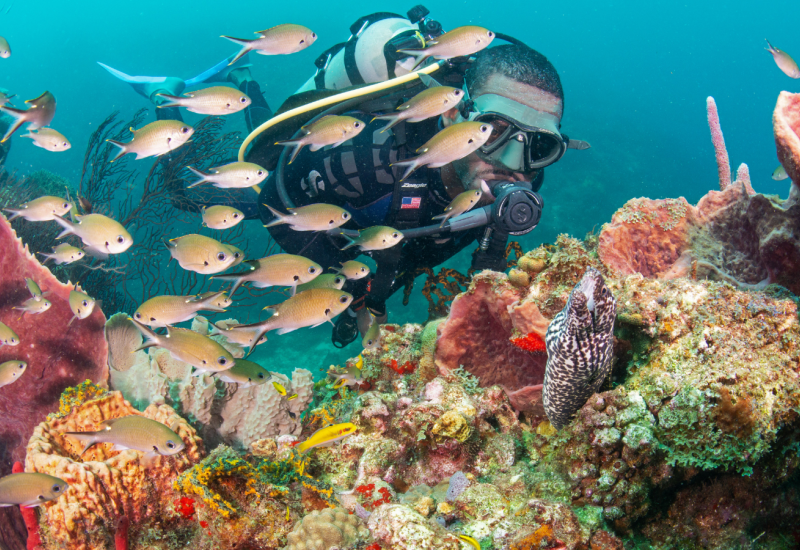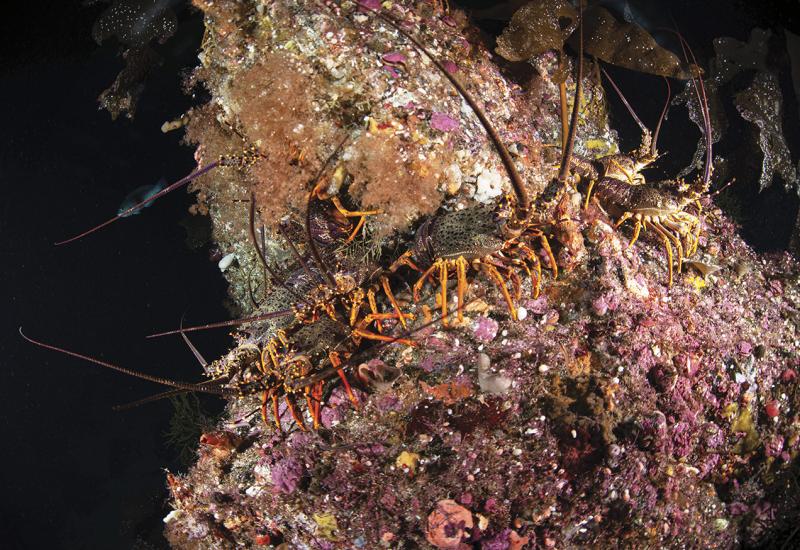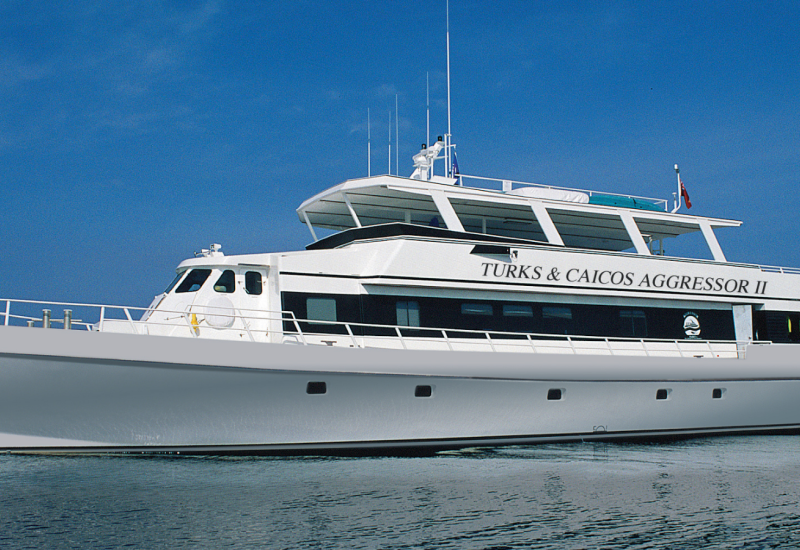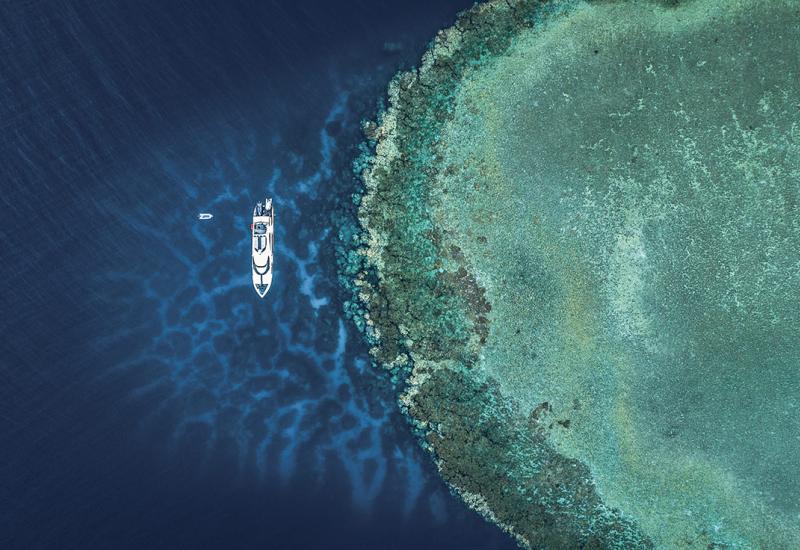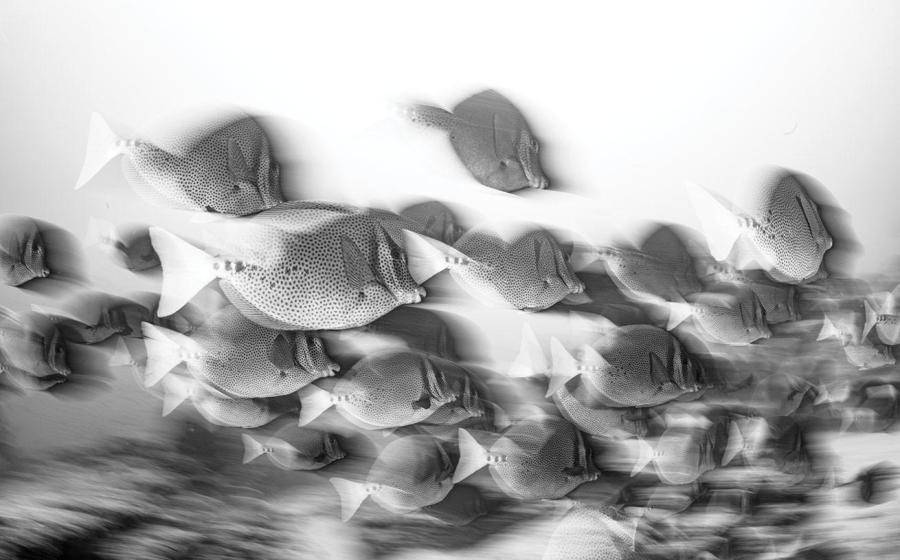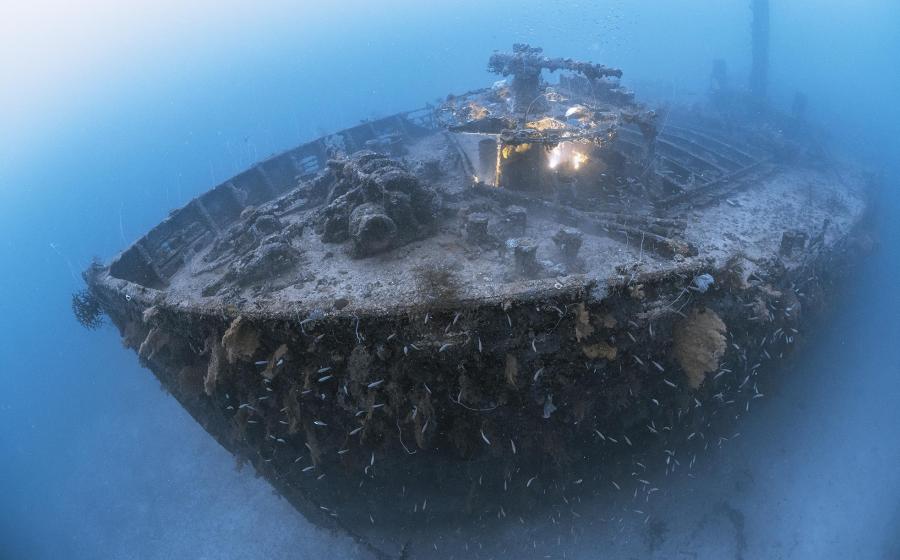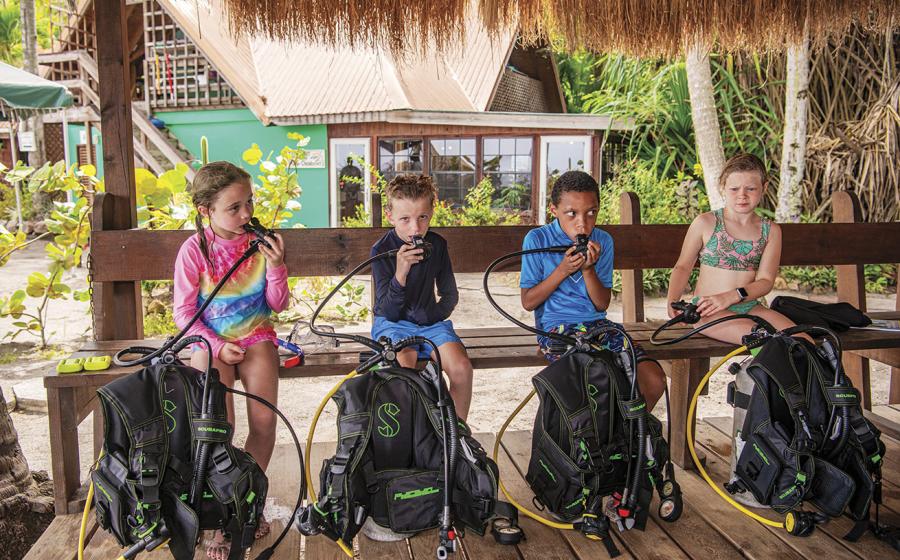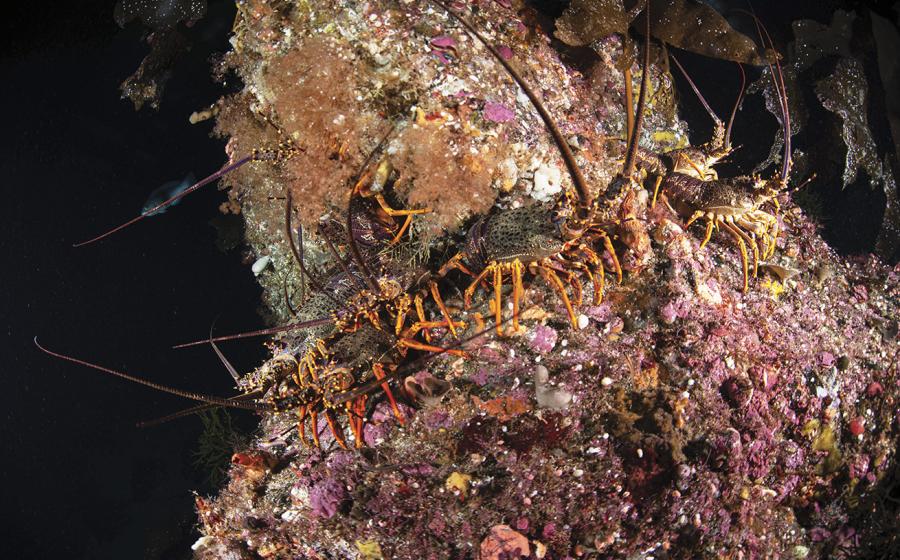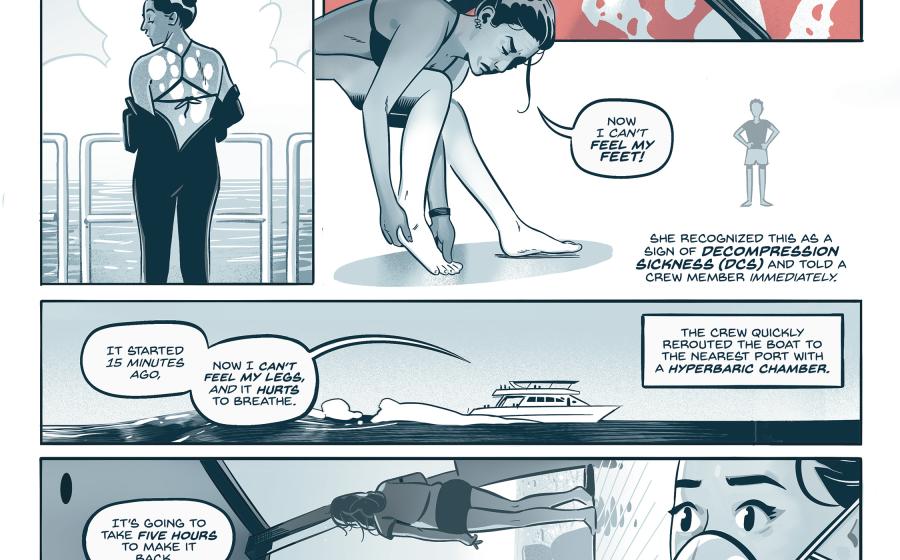Standout Stay: Glamping and Diving in Western Australia
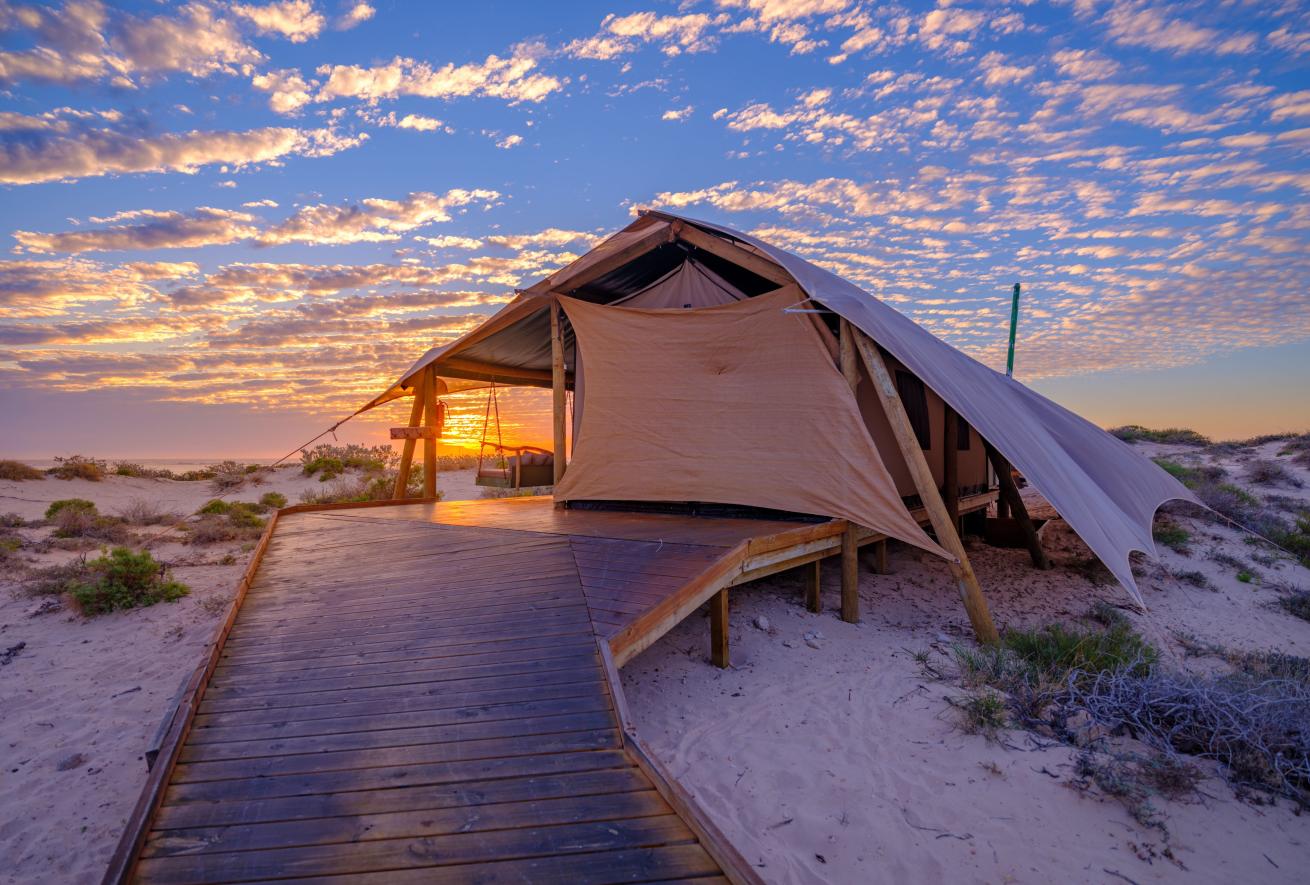
Courtesy Sal SalisA standard safari tent at Sal Salis.
Not all eco-luxury retreats practice what they preach. But Sal Salis, a safari-style camp located less than 200 feet from Western Australia’s World Heritage-listed Ningaloo coral reef, understands the importance—and responsibility—of caring for the treasures in its own backyard.
Operated under lease with the Department of Parks and Wildlife, the property champions sustainability and natural wonder, providing an ideal homebase for divers who are eager to explore the world’s longest fringing reef.
Related Reading: Join the Pelagic Party in Byron Bay, Australia
Exmouth Dive & Whale Sharks NingalooDiving at Ranger’s Bommies dive site.
Australia’s Other World Heritage Reef
Australia is no easy trek for American divers, and Ningaloo—on the opposite coast of the Great Barrier Reef and Sydney—tacks on an extra seven hours of flying time, excluding transfers. But the journey to this far-flung reef is worth it. A biodiversity hotspot boasting over 500 species of fish and more than 250 types of coral, as well as rare and charismatic animals like dugongs, dolphins, tiger sharks, manta rays, loggerhead turtles and leopard sharks, Ningaloo has the world’s largest known aggregation of whale sharks (March-August). It is also a nursery for some 35,000 migrating humpback whales (July-October).
Because Ningaloo is a near-shore reef system, most of its 200-plus dive sites are a quick boat ride away. When staying at Sal Salis, all you have to do is book with one of the local operations, such as Dive Ningaloo and Exmouth Dive and Whale Sharks Ningaloo, or step into the ocean right outside your tent. Depending on the site, snorkeling can be just as good as diving.
Exmouth Dive & Whale Sharks NingalooA leopard shark glides along the ocean floor at Ningaloo Reef.
A Sustainable Paradise
Elegantly camouflaged into the sand dunes of Cape Range National Park, Sal Salis hardly registers as you pass by—and that’s the point. Perched on wooden platforms that simultaneously afford expansive coastal views and prevent soil erosion, the property could move tomorrow without leaving a single footprint behind.
Sal Salis operates under strict rules in accordance with its landlords, Australia’s Department of Parks and Wildlife: Almost 100% of the camp’s power is solar-powered. Each tent is allotted 20 liters of water per person per day, while the en-suite bathrooms come equipped with a non-flushable composting waterless toilet. Meanwhile, guests are asked not to use non-organic bathroom products, and to limit themselves to three-minute showers (a daunting request until you realize the pleasure of waking up with a bath in the Indian Ocean). It’s all done to protect the stunning environment that surrounds you, and ensures that a stay here is truly off-the-grid.
Related Reading: I'm From the Shark Bite Capital of the World. Here's Why I Love Diving with One of Nature's Most Misunderstood Predators
Alexandra OwensThe author after snorkeling along Turquoise Bay.
Break Down the Details For Me
Rooms: These days “glamping” can mean everything from actual camping to staying at a hotel with woodsy interior design and a couple deer on the property. Sal Salis is as close as you can come to a true outdoor experience that, okay sure, pampers you a little bit without toeing over the line into full-blown luxury territory.
Each of the property’s 16 spacious safari tents offers everything you need to be perfectly comfortable, including a generous linen-dressed bed, private bathroom with organic herb soap, deck hammock, solar-powered light and USB charger. (Note that if you want to charge your laptop or camera, you’ll need to do so in the main lodge). Drinking water and daily cleaning service are provided.
Food & Drink: Gather around the lodge’s communal table for a candlelit meal featuring local, seasonal produce; gourmet dishes like filet with chimichurri and avocado salad served with curated wine pairings are not your standard campfire fare. All packages include three meals per day, a self-serve bar with Western Australian wines, beers and spirits, plus snacks and nightly canapés. Most dietary preferences can be accommodated with advance notice.
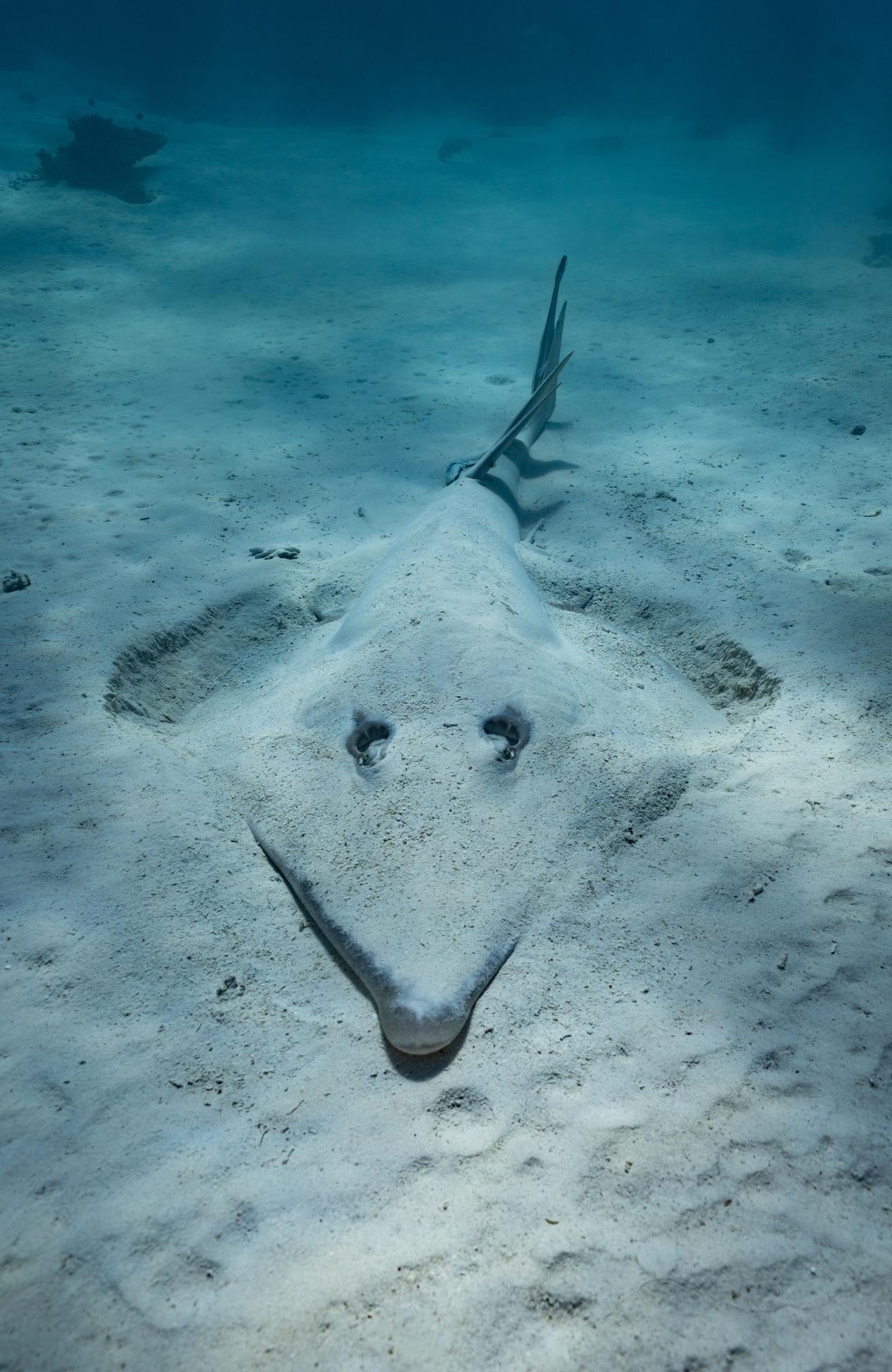
Exmouth Dive & Whale Sharks NingalooA shovelnose guitarfish buries itself in the sand along Ningaloo Reef.
Top Dive Site: It’s hard to resist the Exmouth Navy Pier, considered by many to be one of the best shore dives in the world. Home to over 200 fish species, the site boasts outstanding biodiversity despite its relatively shallow depth (max 50 feet). Look out for the 600-pound-plus BFG (Big Friendly Grouper), plus tasseled wobbegongs, fantastical nudibranchs and curious sea snakes.
Topside Fun: Every day is packed with a new list of complementary activities that guests can sign up for, curated by the property’s guides according to the weather and tide. Hike Mandu Mandu Gorge in search of rare black-footed rock wallabies, go sea kayaking to hidden spots known only by the locals and drift snorkel off Coral Bay, where you’ll discover reef sharks, sea turtles and pristine coral less than 20 feet off the shoreline.
Amenities: A stay at Sal Salis is about getting back to basics and forgetting the outside world. (Seriously—there’s no cell service or wifi here). Amenities include the sunset, ocean and an excellent library full of nature books so you can ID that freaky-looking fish you saw.
Certifications: The resort doesn’t run its own dive program, but can help organize PADI certifications through locally operated businesses in nearby Exmouth, such as Dive Ningaloo and Exmouth Dive and Whale Sharks Ningaloo.
Gear: Sal Salis provides guests with wetsuits and all snorkeling gear free of charge. You’ll need to bring along the rest of your equipment or rent it from one of the local dive shops.

Alexandra Owens
Pricing: As of 2024, one night at Sal Salis costs $656 during the low seasons (3/1/2024 - 3/31/2024 and 10/9/2024 - 11/11/2024), $860 during the shoulder season (7/29/2024 - 10/8/2024) and $933 during the high season (4/1/2024 - 7/28/2024). These flexible rates are based on double occupancy in a standard wilderness tent and includes all meals and beverages, and many activities, such as guided walks, snorkeling tours, kayaking and paddleboarding. You will receive a significant discount for purchasing your room in advance.
Getting There: Sal Salis is located roughly one hour’s drive from Exmouth town and neighboring Learmonth Airport. Qantas flies daily to Exmouth from Perth, the capital of Western Australia. If you choose not to rent a car (which is highly recommended in this remote area) guests can pre-book a shared road transfer through Sal Salis for $100 per person one way. Another option is to drive to camp from Perth; the 13-hour road trip along Australia’s Coral Coast Highway is one of the most popular in the country. If you’re on a tight timeline—and can afford it—consider chartering a private plane or helicopter to the historic Yardie Creek Station airstrip that’s just 20 minutes from camp.

